2022 stove sales increase points to consumers taking action to tackle heating bills

Stove Industry Association (SIA) sales data for 2022 shows an overall 43.4% increase in total unit sales compared to 2021, a trend that the UK trade association says clearly indicates that consumers are taking action to help cushion themselves against spiralling home heating bills. Data collated from all SIA manufacturing members, which accounts for approximately 80% of total UK stove sales, shows that sales grew significantly during the period 1st April to 31st December 2022, with the last two quarters of the year seeing a 68% increase in figures compared to the same periods in 2021. Total unit sales in 2022 were just over 195k, compared to just over 136k in 2021.* This increase shows that consumers are recognising the benefits of using modern, Ecodesign compliant wood burning stoves to provide home heating. Chair of the SIA, Andy Hill, comments: “With the cost for heating our homes accounting for the biggest chunk of home energy bills this winter, it is little wonder consumers are looking for alternatives to supplement their gas or electric heating. Couple that with growing awareness of how stretched the grid is and the increased possibility of more power cuts this winter, the option to use a highly efficient, low carbon and low emission wood burning stove to heat your main living space makes good (common) sense.” Not only is this increase in sales good news for the savvy consumer, but it is also good news for the environment too. Feedback from the SIA’s retail network suggests that in many cases these new sales are a replacement for an existing open fire or a much older, very basic stove. Andy added: “A modern, Ecodesign wood burning stove will emit up to 90% less PM than an open fire, and up to 80% less than many older, basic stoves. Sales of stoves during 2022 were almost exclusively Ecodesign models meaning that consumers are helping to cut carbon and particulate emissions from domestic wood burning, as well as reducing their heating costs.” *Wood log and multi-fuel stoves. Figures do not include boiler stoves or pellet stoves.
Premiere event now with 210 exhibitors and brands – new Fireplace-HUB as communication hotspot
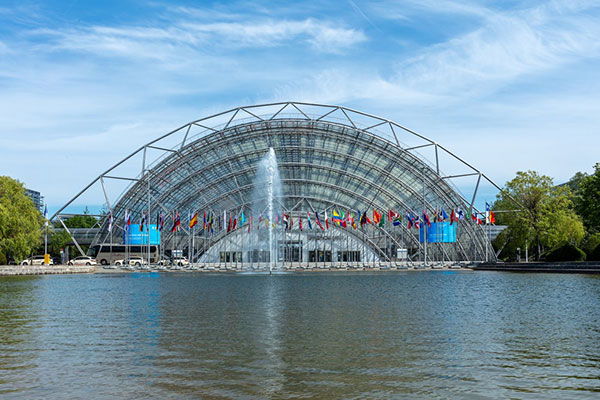
The B2B event “World of Fireplaces” has surprised the industry, the supporting industry association HKI and the trade fair organiser Trendfairs alike by continuing strong demand and a consequently first-class booking status. Hardly anyone could have expected this great response to the event from 17 to 19 April 2023 at the Leipzig Exhibition Centre in advance: 210 binding commitments from companies and brands have now been received, and the 15,000 square metre Hall 5 would soon be too small. The obvious solution: more suppliers will move to the outdoor area in front of the hall, which every visitor will pass through. At the new “World of Fireplaces” present themselves Industry leaders, medium-sized companies and interesting newcomers from the product segments pellet, tile and storage stoves, electric fireplaces and stoves, decorative fireplaces, ovens and grills, flue gas systems, boiler, separator and control technology, fuel, bricks and fireclay, software for Smarthome and for system control as well as various suppliers and suppliers of accessories – and of course the field of outdoor burners is on the rise. However, the high demand for the event now leads to the obvious solution: an outdoor area will be provided. The available outdoor areas with or without a roof can be booked from now. This decision by the organiser Trendfairs (Munich) meets with unanimous approval, because all parties involved are benefitted. But that’s not the only news about the B2B event: the exhibiting companies Ortner, Kleining, Oranier Heiztechnik and Wodtke will be focusing on the topic of “Hybrid Heat” in the special show. And for those who find the numerous innovations too hot in April, we recommend going to Lenzi Hilger. The guest of honour known from TV is not only a self-confessed fan of wood-burning stoves, but as a passionate restaurateur he is also the “World of Fireplaces” host for fresh O’zapftes! The Fireplace Hub, created by the organiser Trendfairs and the driving force Industrieverband Haus-, Heiz- und Küchentechnik e.V. (HKI), provides the podium for lectures and discussions on the topics of air pollution control, hybrid heat, supply, trade and other specialist topics and is developing as the communication hotspot of the trade fair. The program will be communicated daily on www.world-of-fireplaces.de before and during the event. In addition to the aforementioned HKI, the Fireplace Hub will provide space for presentations and advice from the Bundesverband Brennholzhandel und Brennholzproduktion e.V. (BuVBB), the Europäische Feuerstätten Arbeitsgemeinschaft (EFA), the Gesamtverband Ofenbau e.V. (GVOB), the Fachagentur Nachwachsende Rohstoffe e.V. (FNR) and the Bundesverband des Schornsteinfegerhandwerks e.V. (ZIV). Early preparation for the trip and event is recommended for all trade fair guests. From February, interested visitors can purchase a permanent ticket for 29 euros via the ticket shop to enter the trade fair without any further stay. But beware: as a business event, the “World of Fireplaces” is only open to industry visitors. An earlier (or later) arrival or departure is certainly recommended. Leipzig, a “privileged” trade fair city since 1466, is a very attractive venue. Above all, the completely restored historical centre with its round-the-clock pubs, numerous galleries and shops, as well as many architectural treasures, attract every guest.
Wood Recyclers’ Association boss recognised in Women in Trade Associations Powerlist

Julia Turner, Executive Director of the Wood Recyclers’ Association, has been named on the first ever powerlist to celebrate inspirational women in trade associations. Launched today (March 8) by the Trade Association Forum (TAF) to coincide with International Women’s Day, the Women in Trade Association’s Powerlist was compiled by the TAF, Federation of Small Businesses (FSB) and Confederation of British Industries (CBI). The list of 100 women was selected by an expert panel from over 200 public nominations. Nicola Bates, Chair of the Selection Panel, said: “It has been a real pleasure to be able to bring the CBI, FSB and TAF together to champion the role of women in trade associations, celebrate their achievements and encourage the next generation of women into the association sector. “ Since joining the WRA in 2016, Julia has been a champion for the wood recycling sector, working tirelessly to deliver for members. The first woman to lead the Association and sit on its board, Julia has used her background working for WRAP to pioneer a new way of collaborative working with stakeholders and to represent the wood recycling industry at the highest levels. Her successes have included overseeing the publication of ground-breaking guidance on Fire Prevention Plans (FPP), successfully lobbying for recycling centres to re-open during the covid lockdown and spearheading important ongoing work on Waste Wood Classification. Richard Coulson, WRA chair, said: “Julia holds so much respect both inside and outside our organisation and the contribution she has made to the industry cannot be overstated. She has further raised the profile of the WRA, growing our membership to record levels. Put simply, a true champion of the UK waste wood sector.”
Wood burners vs air quality – going beyond the headlines
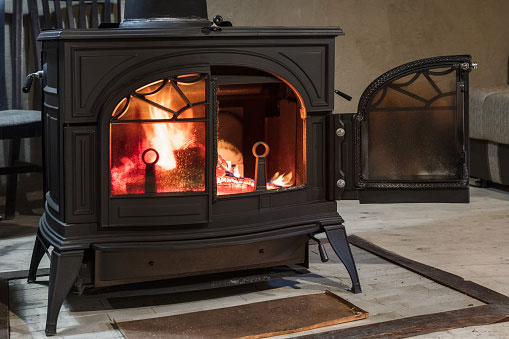
With domestic wood burning taking another pounding in the mainstream press, the Stove Industry Alliance (SIA) has taken a look at the facts in order to determine what the data from air quality monitoring sites in and around London actually tells us. By Erica Malkin – SIA Communications Manager There’s a famous Mark Twain quote about statistics that I am sure has been uttered by many of us in the wood burning stove industry lately. I used it myself in a conversation with a colleague after what had been a particularly busy day recently spent fielding requests from the media for comment about the release of the latest data on emissions of air pollution by Defra. Reading the press headlines and hearing the broadcasted debates that have followed since the Defra data went live, you could be forgiven for thinking that enjoying the warmth, comfort, and cost-effective energy security that our wood burning stoves offer is something we must never, ever confess to; especially if we live in London! So, with Mr Twain’s words in mind, I decided to take a closer look at what air quality monitoring data tells us about what is happening in London when it comes to air pollution. London is not short of air quality monitoring information. The London Air website, a platform run by Imperial College London, holds data from no less than 131 monitoring sites located across the capital. You can interrogate the data for each of these sites using the drop-down boxes within the monitoring section of the website with the ability to select air pollutants, including PM2.5 and PM10 particulates and nitrogen dioxide (NO2), and display the data for each by individual monitoring site. Given the headlines we have been reading lately and the campaigning by groups such as Mums for Lungs and Global Action Plan, I was keen to see if the data backs up the negative rhetoric around pollution from wood burning in modern Ecodesign stoves, so I set about logging the annual mean values (ug/m3) recorded for PM2.5, PM10 and NO2 for all sites (where available) for 2022 and 2023. And a very interesting picture emerged … Taking a closer look, the 2022 average for PM10 was 19 ug/m3 (across 39 sites), and this year so far, the figure sits slightly higher 21 ug/m3 meaning that last year the WHO recommended level for PM10 was met and that this year so far is falls only slightly short. Turning our attention to NO2 and there is less reason to be optimistic. So far this year 19% of monitoring sites in London show breaches of the UK limit of 40 ug/m3 for NO2 – emissions mainly stemming from road transport. Of the 109 sites with data recorded for NO2, 21 sites went over, and the average across all sites is 34 ug/m3 which, while within current UK limits, falls way short of the WHO recommended level of 20 ug/m3 annual mean. Worse still, 2023 NO2 average levels YTD are above the 2022 average of 26 ug/m3 and that’s despite Sadiq Khan’s ULEZ expansion over recent years. It is important that we all play a part in reducing emissions, and by replacing a solid fuel open fire or older closed stove with a modern clearSkies 4 or 5 certified stove we can reduce emissions from burning wood at home for heat significantly by up to 90%. That’s a huge reduction from a single sector. Such a potential reduction is important news when it comes to air quality. So too is the fact that when it comes to PM2.5 and PM10 in London the data from all the monitoring sites listed on the London Air website shows that current UK limits are being met, and that last year’s average PM2.5 levels met the WHO recommended limit (at the time) of 10 ug/m3. Some of the LAQN monitoring sites even recorded annual mean PM2.5 concentration levels last year that come close to the new WHO recommendation of 5 ug/m3. It’s not easy to find a single newspaper column inch reporting on this though. It is easy however to find press articles telling us about the “shame” of “wood burner” pollution, but very few media commentators bother to point out the fundamental technical differences between open fires, older closed stoves and modern, Ecodesign compliant closed stoves. They rely instead on the catch-all term “wood burners” and in doing so miss important facts in their reporting. Of course, we must all strive for better when it comes to reducing emissions. It is modern, technically advanced stoves, coupled with effective stove user education, Smoke Control Area enforcement and industry regulation, that are the key to helping us do better and reduce air pollution linked to indoor domestic combustion. As the recently published Environmental Improvement Plan points out, it is vital that we “Design and implement measures to drive a shift away from older, more polluting appliances, to newer appliances which meet our tough new emission standards.” To effectively communicate the facts about air pollution relating to indoor domestic combustion we must not only report on domestic combustion methods accurately, but we must also look beyond the headlines and study the air quality monitoring data. That really is the only way we can ensure that valuable statistical information is not spun to suit a particular agenda but is instead presented exactly as it is.
Percy Doughty welcomes the Government’s Environmental Improvement Plan 2023
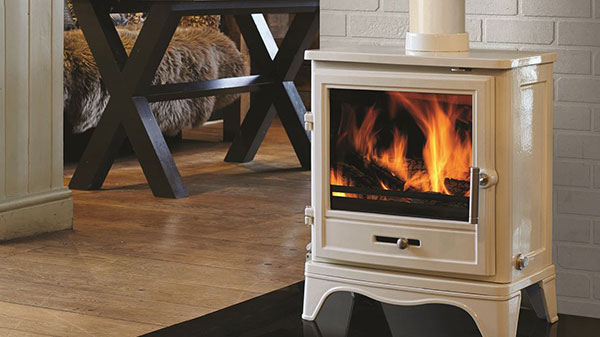
The 25 Year Environment Plan sets out a vision for a quarter-of-a-century of action to help the natural world regain and retain good health. It pledges to refresh the plan every five years, a commitment set into law in the Environment Act 2021. The new document represents the first such review reinforcing the intent and setting out the framework, vision, and the plan to deliver. This plan is very exciting for us as a business and the industry as a whole, as we are all working to achieve the same aims and goals together. To achieve the vision, the plan sets ten goals. They have continued to use these ten goals as the basis for this document.It sets out the progress made against all ten, the specific targets and commitments made in relation to each goal, and the plan to continue to deliver these targets and the overarching goals. In accordance with Goal 2 of the plan, Percy Doughty’s range of DEFRA approved appliances for use in smoke-controlled areas already operate at levels far below the proposed new limit of 3g per hour. Andrew Mulligan managing Director said, “Percy Doughty is committed to refining all new appliance designs, through new innovative technologies, making stoves extremely efficient, and further exceeding the new permitted smoke levels set out in the welcomed environmental improvement plan.” Important to note: that the Government is not considering a ban on domestic burning in England. The UK government recognises that some households are reliant on solid fuel burning as a primary source for heating, hot water and cooking, with this in mind the government is not seeking to ban burning. A ban on domestic outdoor burning (bonfires, barbecues, firepits etc.) would also be considered disproportionate. To review the report in full visit: Environmental-Improvement-Plan-2023 Percy Doughty & Co based in Bolton, are a UK market leader in solid fuel spares, fireplaces, stoves & accessories. Selling directly to the trade since 1952, the product portfolio now boasts a range of over 6000 stock lines, home of the Vision Trimline, Vision E-Line, Penman and Gallery collections. For more information on Percy Doughty please call 01204 868550 or visit www.percydoughty.com
HETAS responds to Defra’s emissions of air pollutants statistics
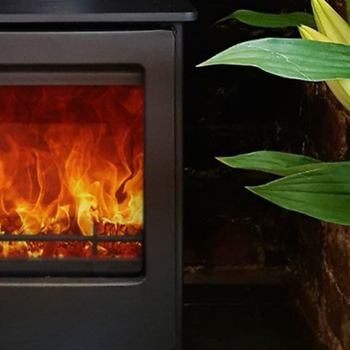
By HETAS The new ‘Emissions for air pollutants in the UK’ publication released on February 14 by Defra has highlighted an increase in burning wood for fuel by 124 per cent between 2011 and 2021, and a decrease in use of coal for domestic heating. The report also highlights emissions of particulate matter (PM10 and PM2.5) originate from a wide range of sources covering domestic activity, industrial activity, power generation, transport and agriculture. HETAS and Woodsure group’s CEO reveals how improved consumer education will help steer homeowners towards cleaner, safer solid fuel choices. Bruce Allen, chief executive officer for Woodsure, comments: “Acknowledging the report, we push forward in continuing to help improve the UK’s air quality. With measures already in place such as public education, Cleaner Choice, regular advice around maintenance and schemes such as ‘Ready to Burn’, we are confident that as an organisation the next report can only continue to be positive as we work hard to educate and improve on the way the UK chooses to burn. “Our concern though is that a portion of this good work could now be undone. While domestic burning is only part of the air pollutants problem, last year we saw an unprecedented demand for solid fuel as more people turned to it as a less expensive way to keep their homes warm. “The plan confirms that domestic burning in England will not be banned any time soon not while there are countless households unable to access an alternative means of heating. But education is the vital, burning issue. So long as there are homes where their only option is to burn solid fuel, we will maintain our focus in helping these individuals make greener choices with the tools they have now – and we are thankful that the government is of the same mind.” “For anyone using old open fires or stoves we strongly recommend considering a change to a modern cleaner burning appliance and being careful to buy the right smokeless fuels and dry “Ready to Burn” wood fuel. These measures will contribute to environmentally responsible burning and reduce particulate emissions and pollution. At the crux of this is educating the consumer on the best way to burn to cause as little damage to the environment as possible, for as long as they have no other means of heating their home economically. “For this reason, our organisation welcomes the government’s call for a renewed focus on educating consumers and we support the call for action against those who burn irresponsibly. Both of these critical points are backed up by the National Air Pollution Control Programme, published by Defra earlier this year.” HETAS and Woodsure work independently alongside local authorities and the likes of the new Department for Energy Security and Net Zero, Defra and DLUHC to reach householders who are either unclear or unaware of the cleanest, safest ways to burn biomass or solid fuel. Helpful resources from HETAS and Woodsure include: For more information about cleaner, safer choices for solid fuel use within the home, visit hetas.co.uk or woodsure.co.uk.
Ban on wood stoves? HETAS dispels rumours
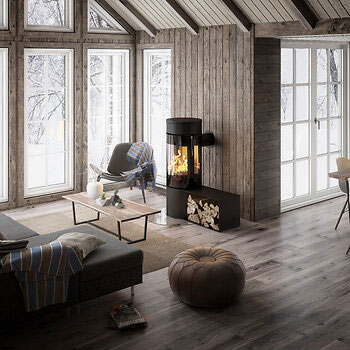
By HETAS No doubt you will have seen some headlines about a possible ban on wood stoves. Here, we identify the truth behind the headlines and what measures the government is undertaking in relation to domestic burning. HETAS, the not-for-profit organisation that is working for a cleaner and safer environment looks beyond the recent headlines to identify the measures the government is putting in place and the roles we all must play in reducing the environmental impact from domestic burning, including confirmation through the recently published Environment Improvement Plan that clearly states that the government is not considering a ban on domestic burning in England, and it recognises that some households are reliant on solid fuel burning for heating, hot water, and cooking. Additionally, a ban on domestic outdoor burning would also be considered disproportionate. Back in May 2018 the then Environment Secretary Michael Gove published the Clean Air Strategy 2018 which aimed to cut air pollution and save lives, backed up through new primary legislation. So, what does the strategy say? The strategy, which went out for consultation during August 2018, became a key part of Defra’s 25 Year Environment Plan (25YEP) to leave our environment in a better state than we found it. The 2023 publication of the Environment Improvement Plan represents the first such review. It reinforces the intent of the 25YEP: setting out the framework, vision, and plan to deliver. Here, we outline the actions outlined in the Environment Improvement Plan. No ban on wood stoves | The key points The Clean Air Strategy summarises actions to reduce emissions from domestic burning, clarifying there is no intention to ban wood burning stoves, further supported by the recent publication of the Environment Improvement Plan 2023. Here are the key points of the Clean Air Strategy: Several of the measures highlighted in The Clean Air Strategy have now been implemented through The Air Quality (Domestic Solid Fuels Standards) (England) Regulations 2020 and the 2021 Environment Act. The Air Quality (Domestic Solid Fuels Standards) This legislation was successfully passed through both The House of Parliament and The House of Lords in 2020. This was closely followed by the legislation receiving the Secretary of State’s signature, moving the regulation from draft status into law in October 2020. HETAS and Woodsure administer the Ready to Burn certification schemes for wood and manufactured solid fuels that are intended for immediate use. The Ready to Burn certification mark helps consumers to easily identify solid fuels that are legal to burn at home in compliance with Air Quality Regulations introduced earlier this year which bans the most polluting fuels, wet wood, and house coal, from sale in England. Wales and Scotland are considering similar measures. Search for Ready to Burn certified wood fuels at www.readytoburn.org and search the smoke control website for Ready to Burn certified manufactured solid fuels (MSFs). Learn more about the Regulation this comprehensive summary. The Environment Improvement Plan 2023 (EIP2023) The EIP was published by government on the 31st of January 2023. The Plan clearly states that the government is not considering a ban on domestic burning in England, and it recognises that some households are reliant on solid fuel burning for heating, hot water, and cooking. Additionally, a ban on domestic outdoor burning would be considered disproportionate. The Environment Improvement Plan outlines further measures relating to clean air and emissions from the home. These include: Further details on these proposals were outlined in the revised UK’s National Air Pollution Control Programme (NAPCP) which was published shortly after the EIP on the 9th of February 2023 and replaces the 2019 version. The NAPCP sets out how the UK can meet the legally binding 2020 and 2030 emission reduction commitments (ERCs). These commitments apply for 5 pollutants: Over the last twelve months HETAS has developed its product approval scheme to better support these government initiatives, and has implemented the Cleaner Choice certification scheme for stoves (including pellet stoves), boilers, and biomass systems. Appliances listed on the scheme already demonstrate at least a 50% improvement on the current particulate limits for exemption. This highlights our commitment to identifying appliances that meet and exceed current particulate emission legislative requirements alongside safety, with a wide number of appliances now meeting the Cleaner Choice standard. Scientific Research Building on previous studies like the one commissioned by HETAS in 2019 there are multiple current and planned scientific studies and investigations aimed at identifying the most polluting sources and those which are potentially less polluting. This will help the industry and government to prioritise resources and take action to reduce emissions from the most polluting sources. Defra leads much of the scientific work with HETAS, Woodsure, and other industry and scientific stakeholders supporting them in their extensive efforts. On the research Bruce Allen, CEO of HETAS and Woodsure, explains: “Air quality is an enormous area of focus for us. At HETAS we help by certifying approved and less polluting appliances, fuels, and tradespeople in the industry, but there is much that is outside of our influence now. “We really need to look at what the science is telling us about particulate pollution so we, as a country, can hit our emissions targets. “One of HETAS’ most important roles is helping people understand how to reduce the impact of burning at home. There are practical steps that can be taken immediately to reduce carbon and particulate emissions in the home by up to 90%, compared to burning coal in an open fire. “Using only high quality, sustainable and renewable fuel, like pellets or Ready to Burn certified wood that has up to 20% moisture content, will improve fuel efficiency, air quality, and reduce greenhouse gas emissions. Keep your wood burning or solid fuel appliance well maintained and always use a HETAS certified installer or sweep. “ Enforcement There’s no doubt you will have seen the recent press coverage about wood burning and possible fines. HETAS is here to put your mind at ease. Burning low-quality fuels, such
